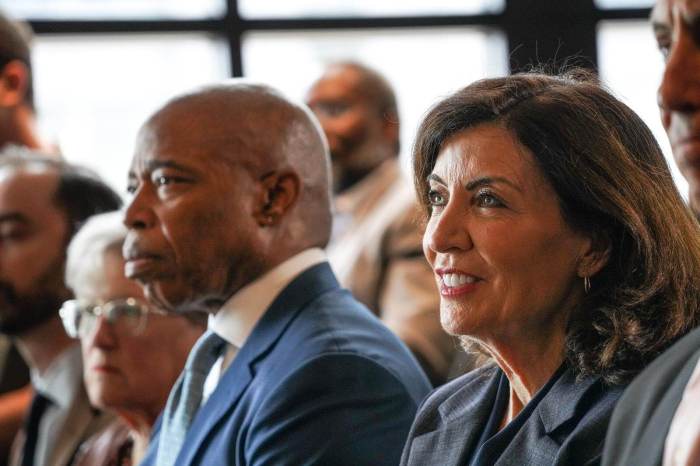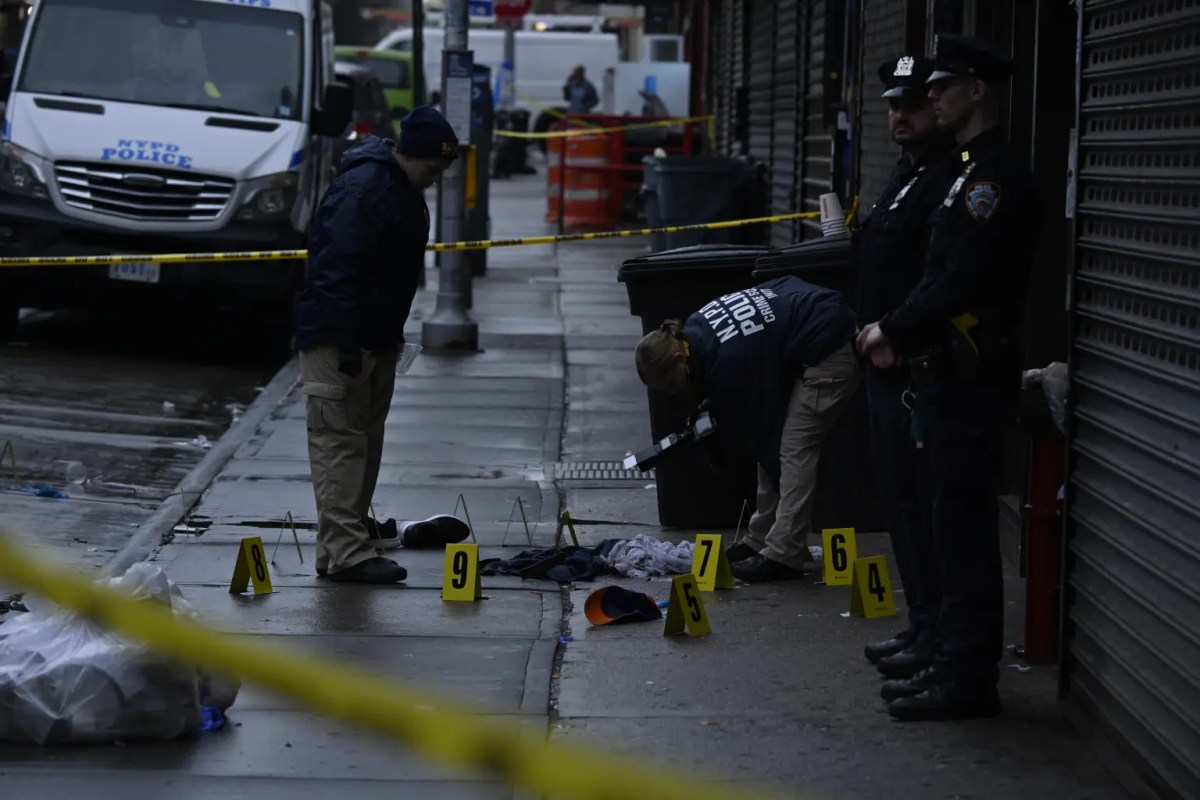Disagreements should never end in death.
That is the message that one grieving family wants taught in city schools and libraries after 19-year-old Carl David Richardson was stabbed to death in a Laurelton barbershop.
Police arrested Cedric Simpson, 34, of Queens Village on March 27 after he allegedly stabbed the Springfield Gardens teen to death at the Select Stylez barbershop with a pair of shears. Family members said Simpson, a barber, killed Richardson, a Nassau Community College student and aspiring occupational therapist, after refusing to pay him $40 for a pair of Bluetooth headphones.
But instead of seeking revenge, Richardson’s devastated family members are praying for Simpson, who is being held without bail in Rikers awaiting trial on second degree murder. And they have unrolled a media campaign and petition on Change.org asking Gov. Andrew Cuomo to implement a conflict resolution program named after Richardson in schools and libraries that has so far garnered almost 1,000 signatures.
“My family and I are focused on turning this tragedy into something positive,” said Sherina Peredaviz, 30, an evaluation coordinator for an early intervention program who lives in East New York. “I’m so tired of turning on the news and seeing people dying; seeing our future dying,” because people have not been taught how to resolve disputes amicably, Peredaviz said. As a mother of three boys, ages four to 11, “I’m scared for my children,” she said.
Disrespectful postings on social media and beefs over belongings, behavior and allegiances too often escalate into fatal encounters, she noted. “People have so misconstrued the idea of respect,” said Peredaviz: “Being respected has nothing to do with making someone scared.”
Research shows that young people likely to encounter troubling conflicts. According to a 2011 Centers for Disease Control and Prevention Youth risk behavior survey issued by the CDC, 9.1% of NYC high school students reported carrying a weapon and 2.3% reported carrying a gun to school in the previous month. Nationally, 5.9% skipped school at least once in the previous 30 days because they felt unsafe. And 26.1% of all U.S. kids had possessions stolen or deliberately damaged on school property and 20.1% had been bullied on school property during the previous year.
“Violence is an epidemic. We have to target it like it’s a disease and provide both medicine and prevention,” said Peredaviz.
While Peredaviz and her sister, Dina Levin, 32, of the North Bronx, envision a curriculum including ex-offenders, district attorneys and criminal defense lawyers to explain the momentous consequences of a single, rash act, they concede their desire to wring survivor meaning from their baby brother’s death is also somewhat impulsive. They are petitioning the governor, for example, while asking for changes in NYC. But “we just want to get the movement rolling,” and get stakeholders interested in finding solutions, Levin explained.
When the governor receives the petition, “the state will review the proposal and is committed to working with local communities to prevent such senseless tragedies,” said a spokeswoman for Gov. Andrew Cuomo.
A spokesman for the education department declined to comment on the family’s idea and provided links to its “Respect for All” program that a spokesman said is in NYC schools.
The New York Public Library, which already offers a wide range of free educational programming, is “always open to suggestions for new classes that could potentially better the communities that we serve,” as well as strengthening existing programs, said NYPL spokeswoman Angela Montefenise.
Richardson’s family wants workshops offered in libraries because many latchkey kids who use them after school are desperate to feel “a part of something other than a gang,” Peredaviz explained.
The accused killer faces up to 25 years in prison if convicted.
“I have sympathy,” for his family, too, said Peredaviz, adding “the whole problem with the world is we don’t know how to love each other.”
While she is happy to let justice take its course, she forgives her brother’s accused killer, she said, in part because Carl, too, had a bit of Gandhi in him. “If you were ever unkind to Carl,” she explained, “10 minutes later he would forgive you.”

















